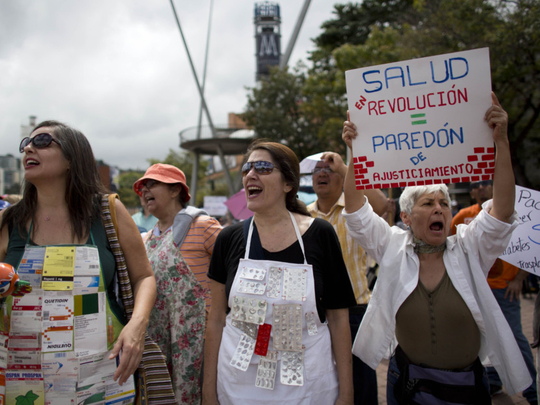
Fifty years ago, in January 1968, the reformist leader Alexander Dubcek rose to power in Czechoslovakia. His ascent began a brief era known as the Prague Spring, which ended when peaceful protests against the presence of Soviet troops in the country were violently put down by Russian tanks as the West passively looked on.
Leaders in Europe and the United States justified the decision not to intervene in Prague by invoking the Cold War, which put countries on both sides of the Iron Curtain perennially on the brink of nuclear apocalypse. It remains one of the darkest moments in western history, as enlightened as it may be by the values and rights produced by the British, French, and American revolutions.
The decision to turn our backs on the protesters demanding freedom in Prague was a moment of collective blindness, much like the 1938 Munich Agreement that handed Czech territory to Adolf Hitler in exchange for the dictator’s ill-fated promise not to go to war. In Munich, in 1938, and again in Prague, in 1968, the West’s absolute faith in appeasement led it to fall for the dictator’s traps and abandon its defence of democratic rights and freedoms.
Western leaders today need to remember those moral and political failures — and learn from them — to avoid making the same mistakes. They need to hold fast to the values that distinguish democracies from dictatorships, to keep respecting and defending every citizen’s fundamental rights to life, liberty, and prosperity.
This can be done in symbolic ways, the way former US president John F. Kennedy did in the German capital in 1963, when he spoke the words “Ich bin ein Berliner” (“I am a Berliner”) to denounce Soviet oppression in the East, or the way former US president Ronald Reagan did 24 years later when he implored Moscow to “tear down” the Berlin Wall, helping spark the collapse of Communist regimes in Eastern Europe.
We live in a generation where the West is once again wavering in the face of widespread human rights violations around the globe. For six years, it stood by as Syrian President Bashar Al Assad slaughtered almost 400,000 of his citizens in his country’s civil war. In the last three months, it stayed on the sidelines as Iraq, Turkey and Iran cracked down on the Kurdish dream of statehood after an overwhelming vote in favour of independence.
During two weeks of nationwide revolts in Iran earlier this year, European leaders remained quiet as dozens were killed protesting Tehran’s spending on military adventures abroad. They are quiet as 30 million Venezuelans suffer from the hunger, poverty and violence of the regime of President Nicolas Maduro. And they too easily forget the pain of 24 million North Koreans who are brutally oppressed by a leader obsessed with amassing nuclear warheads.
The silence is deafening.
It’s legitimate to wonder whether the millions of Syrians, Kurds, Iranians, Venezuelans and North Koreans today feel the same bitterness and delusion towards the West that many Czechs felt in 1968, when they waited in vain for western support as Soviet tanks advanced on them. We must ask ourselves if we aren’t making the same mistake today by failing to extend a hand to those yearning for freedom in Damascus, Tehran, Pyongyang and Caracas.
The appeasement of 2018 isn’t rooted in the dangers of the Cold War. This time, it’s justified by vaguely defined Western interests. And yet, once again it is pushing the West into the same trap set by dictators who only have one interest: Laying bare the fragility of western values of freedom and democracy.
— Worldcrunch, in partnership with La Stampa/New York Times News Service
Maurizio Molinari is a journalist on Italian daily newspaper La Stampa.










